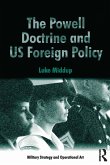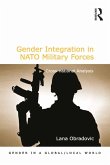European armed forces have undergone deep changes in the past two decades. Given the breadth of the debate and the size of transformations that took place, it is somewhat surprising that relatively few academic studies have directly dealt with changes in force structure of European militaries, and the Italian armed forces in particular. The focus of this book is the organizational dimension of the restructuring of armed forces through 3 different lenses: doctrine and strategic framework, budget and resource allocation, and force structure and deployment. The key issues addressed relate to how these factors interact in shaping transformation. Of particular interest is the theme of learning, which is how armed forces endogenize change in the short and long run. This study provides valuable insights into the extent to which armed forces manage to adapt to the emerging strategic and operational challenges they have to face and to illustrate the weight of institutional legacies, resource constraints and inter-organizational learning in shaping transformation. Focusing on the Italian case in comparative perspective and based on a large variety of military operations from airstrikes to peacekeeping and counterinsurgency, the book provides an innovative viewpoint on military transformation and significantly contributes to our understanding of contemporary security that is deeply shaped by the lessons learnt in Afghanistan, Lebanon, Iraq and Libya.
Dieser Download kann aus rechtlichen Gründen nur mit Rechnungsadresse in A, B, BG, CY, CZ, D, DK, EW, E, FIN, F, GR, HR, H, IRL, I, LT, L, LR, M, NL, PL, P, R, S, SLO, SK ausgeliefert werden.









